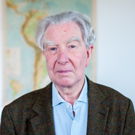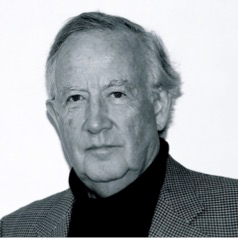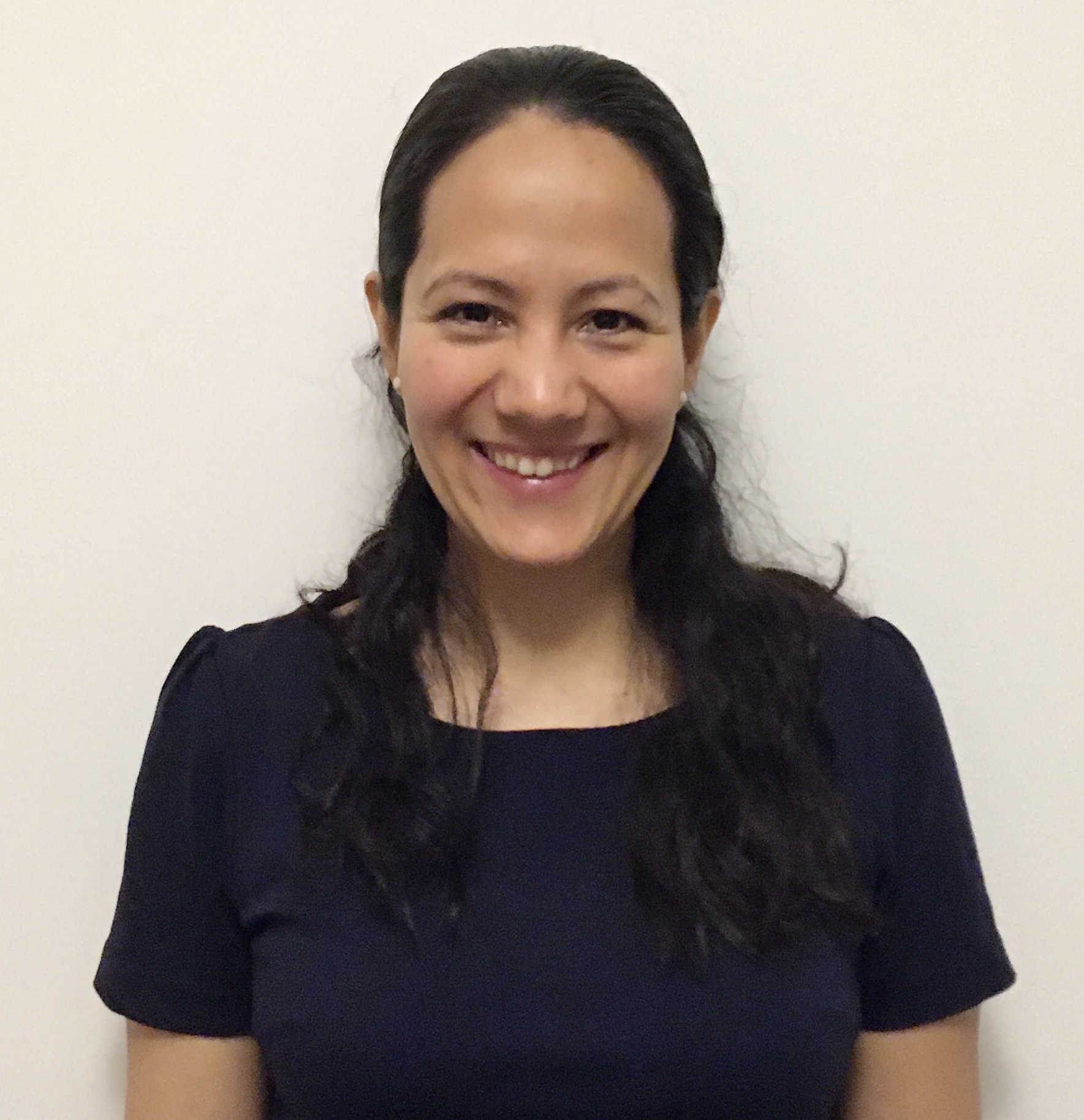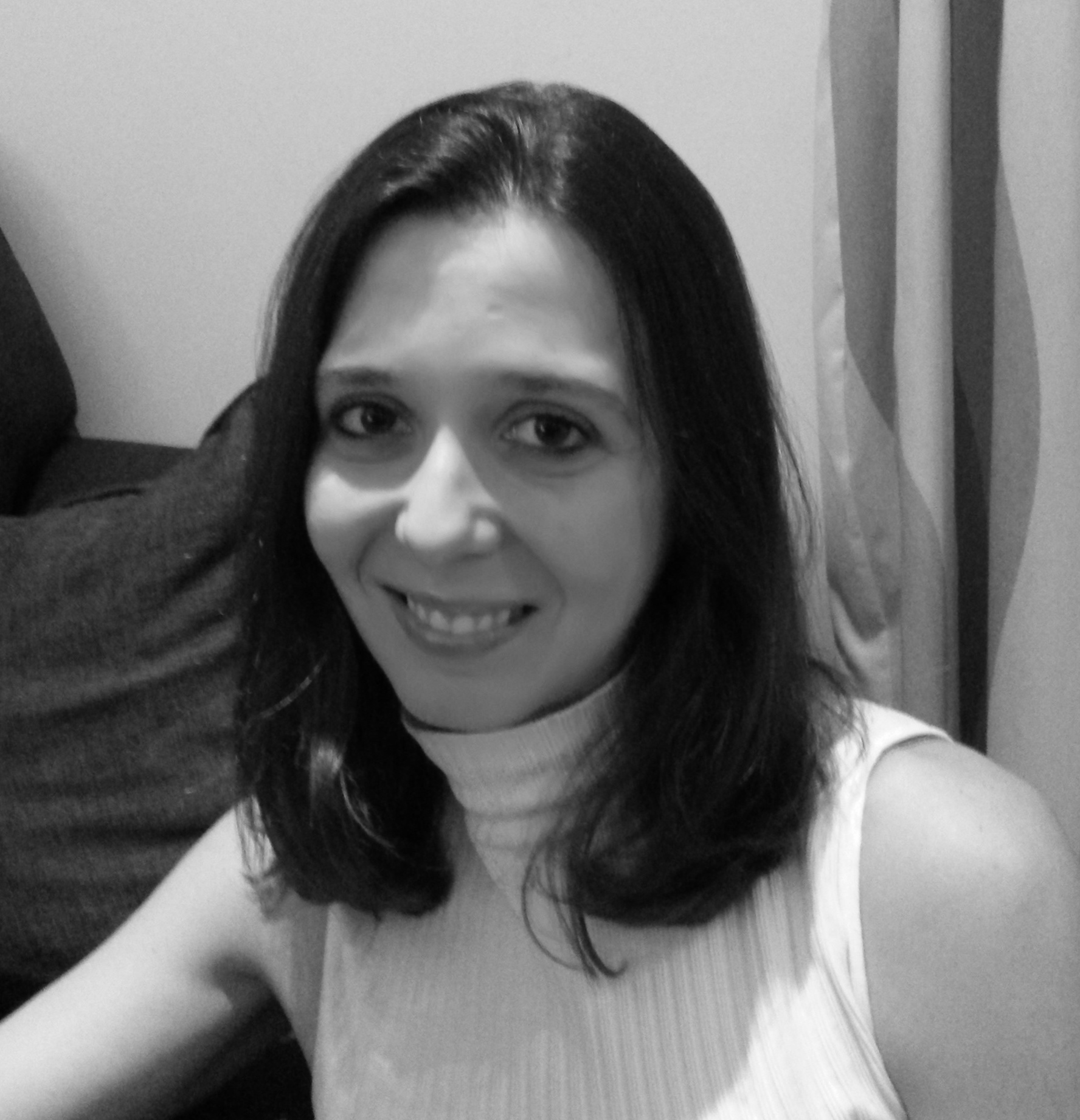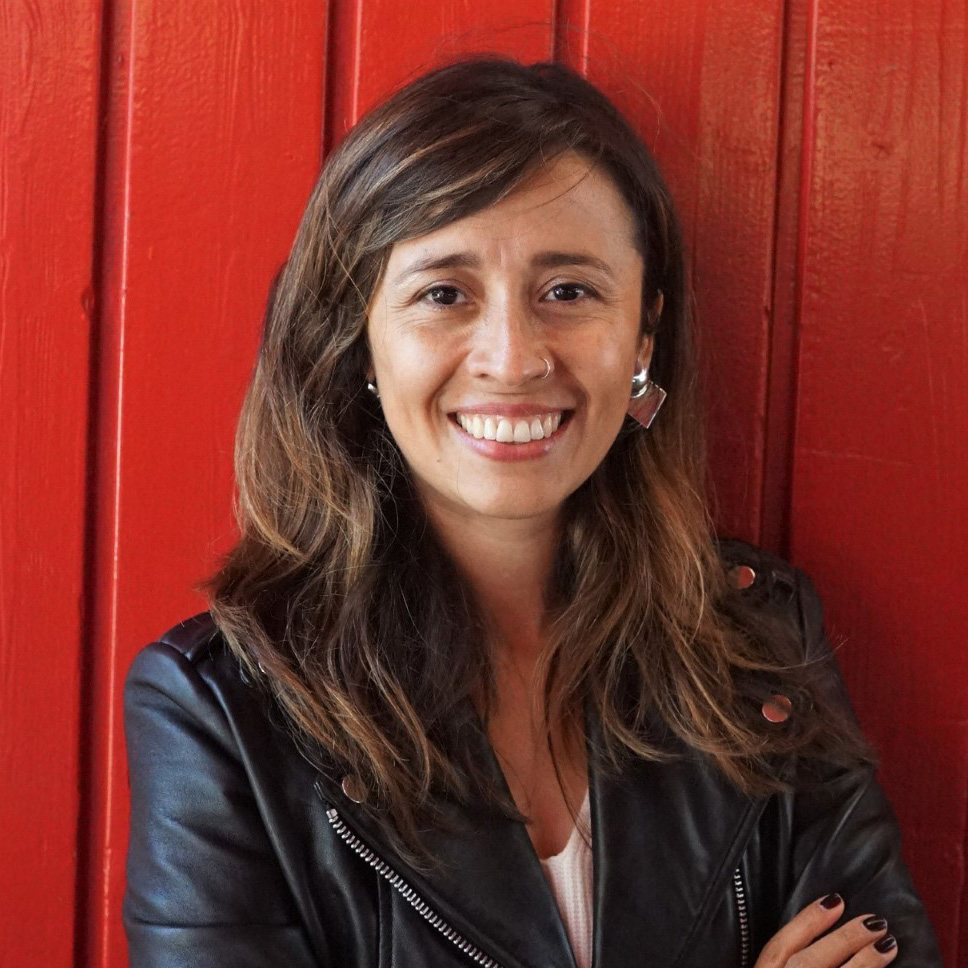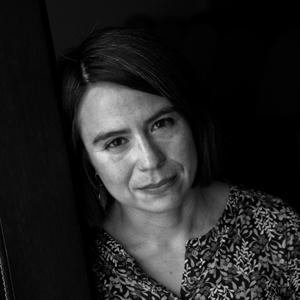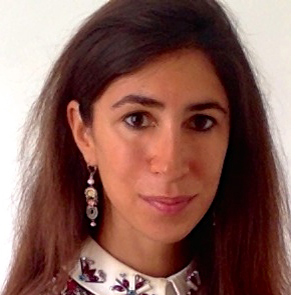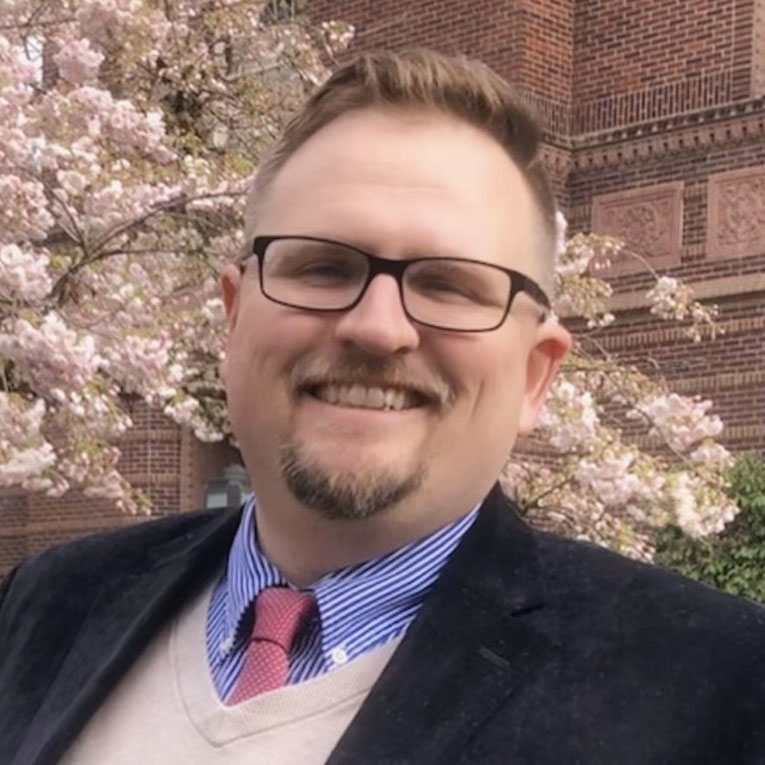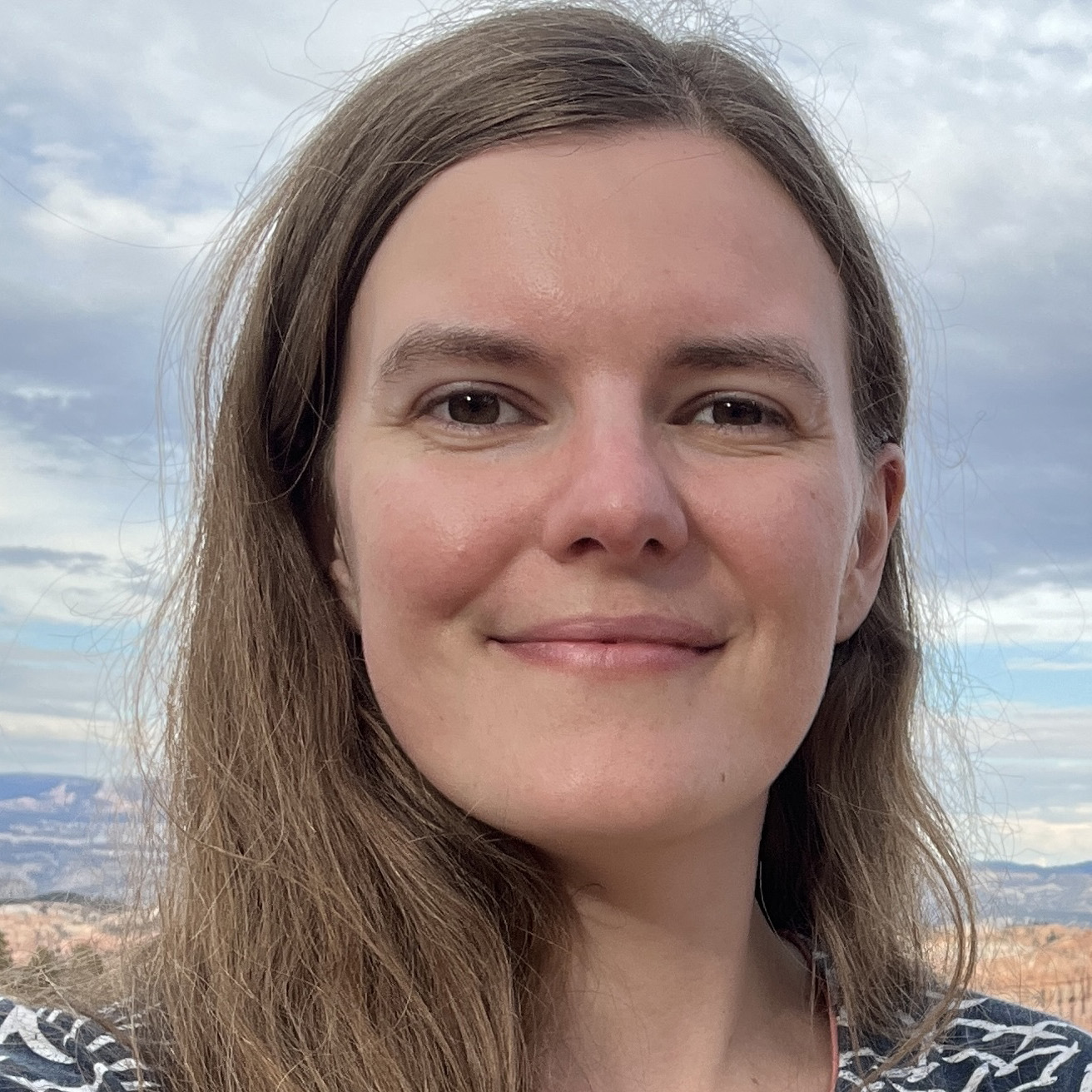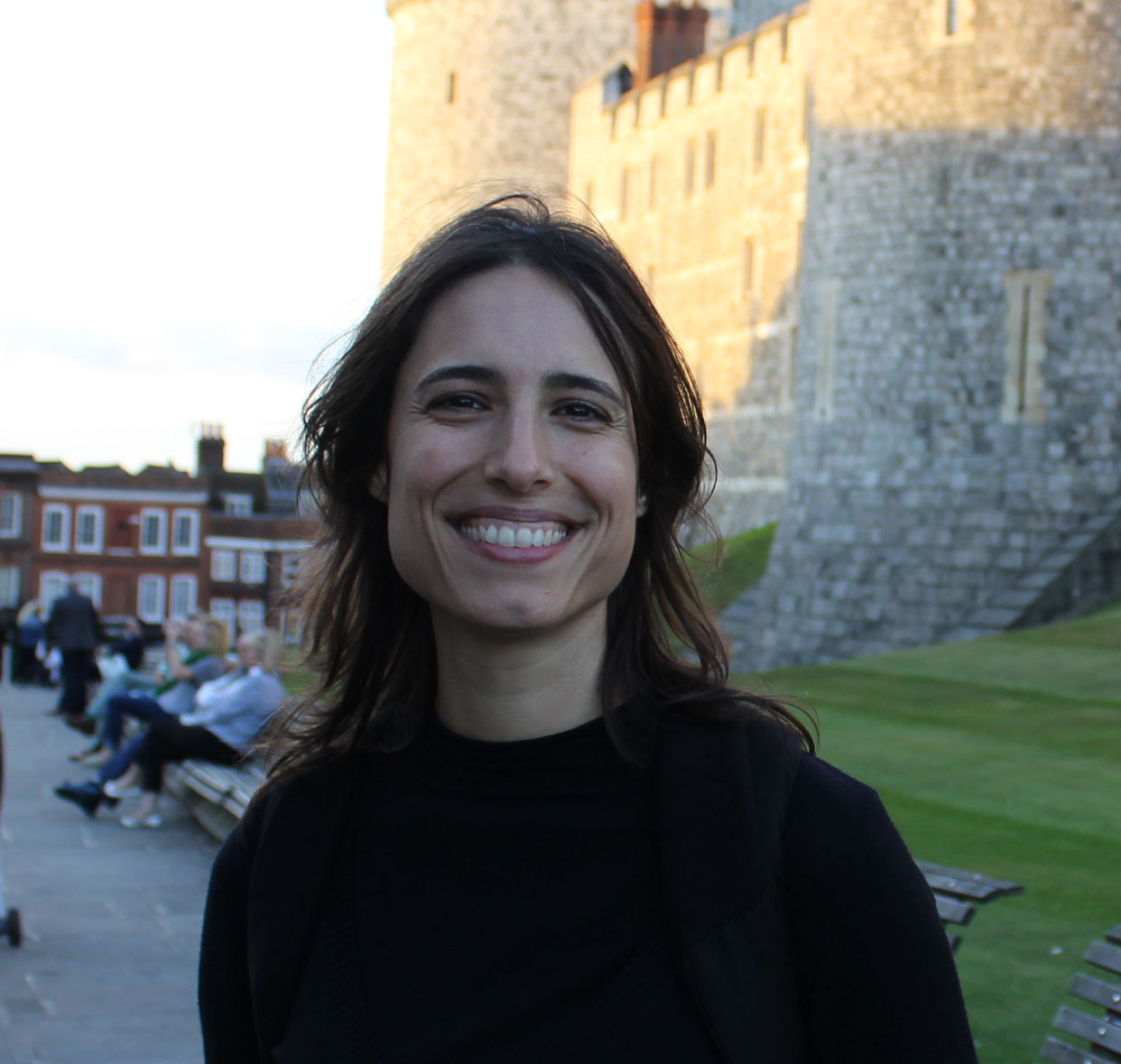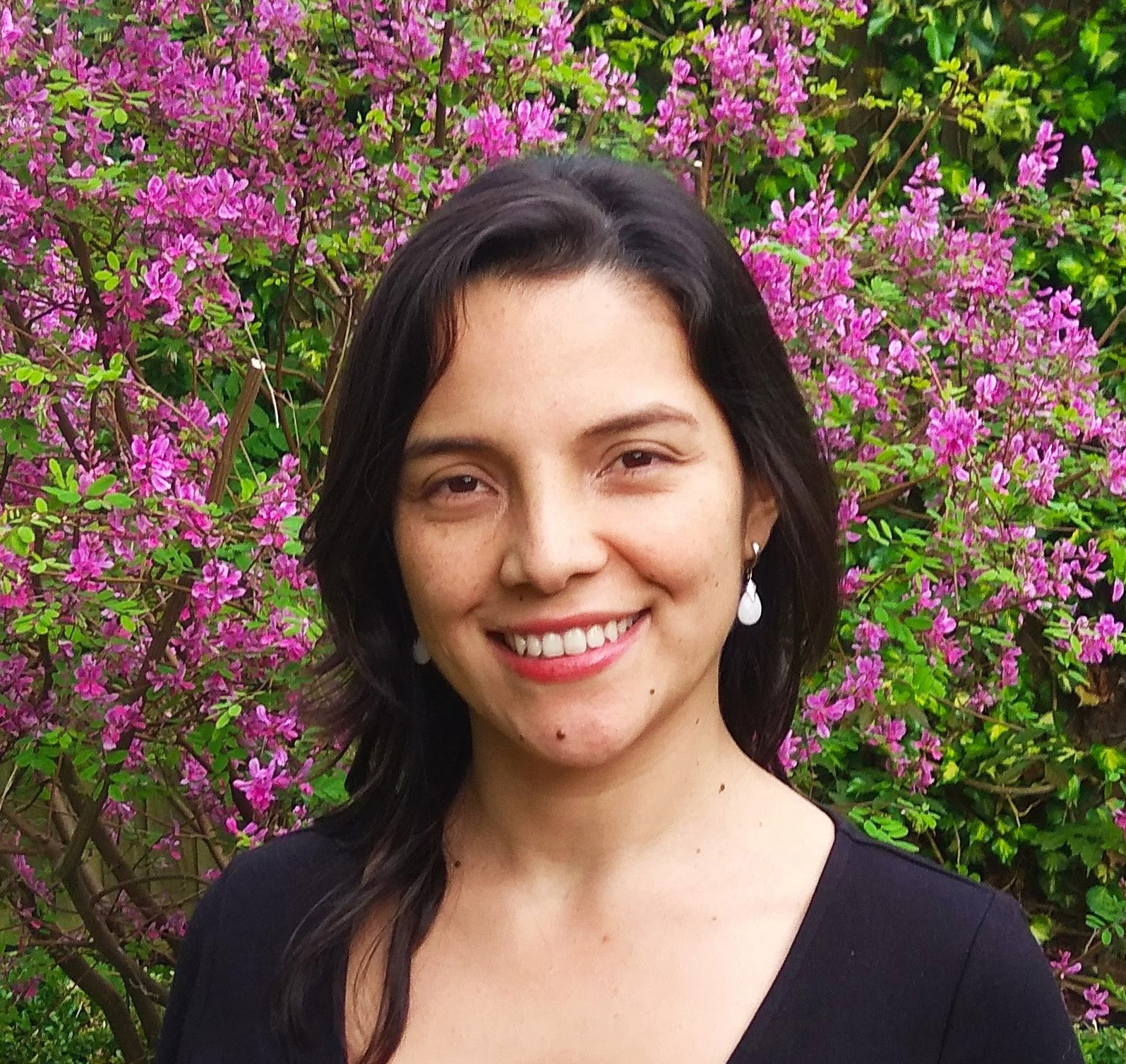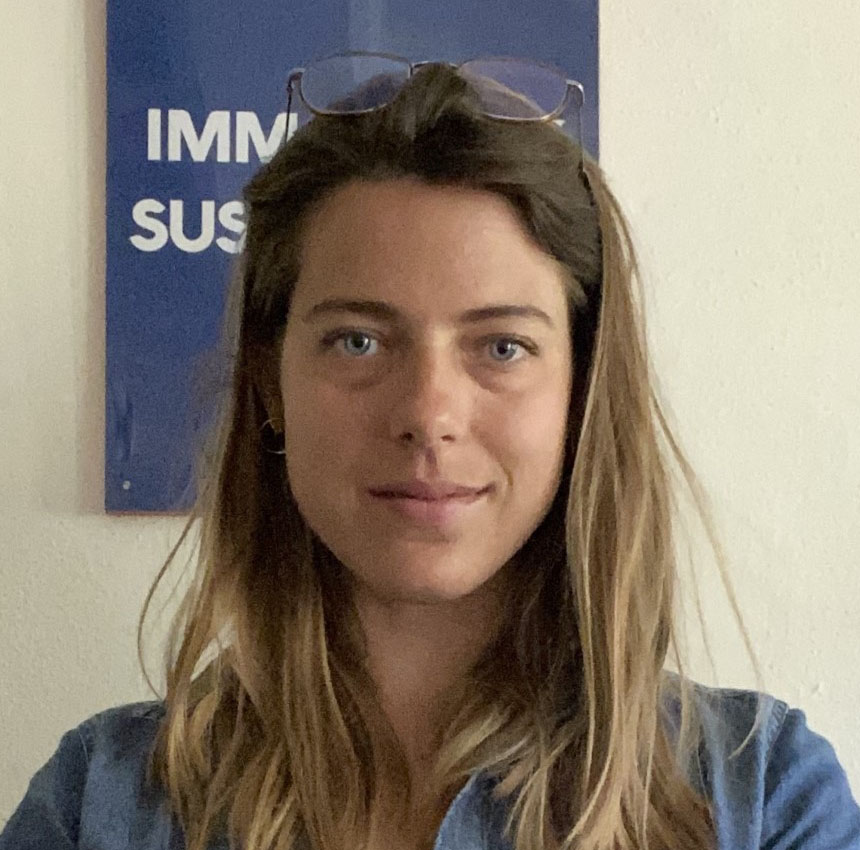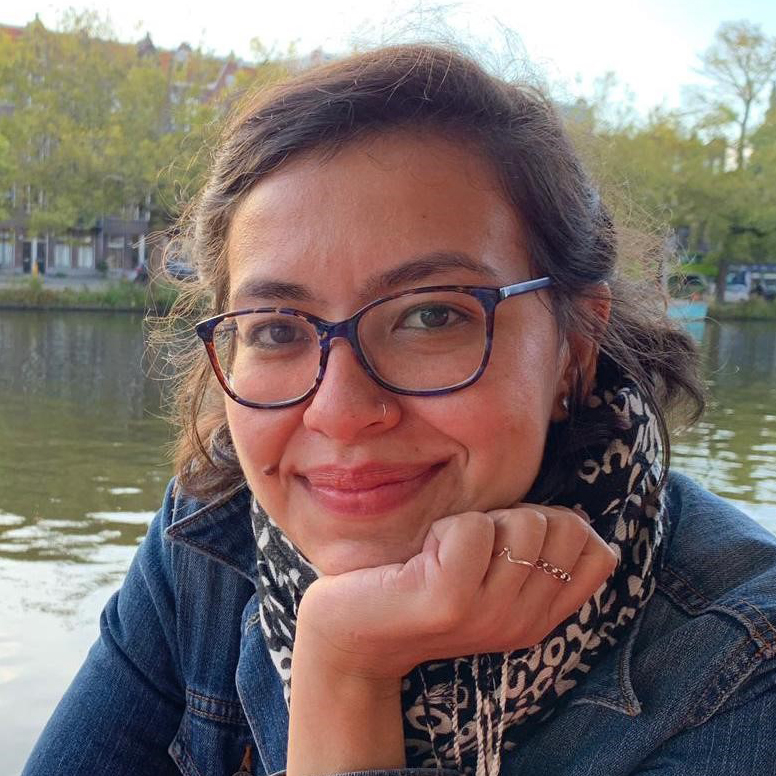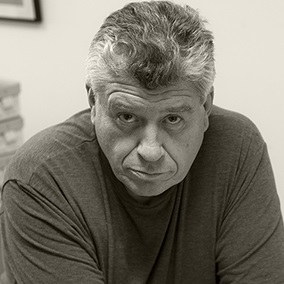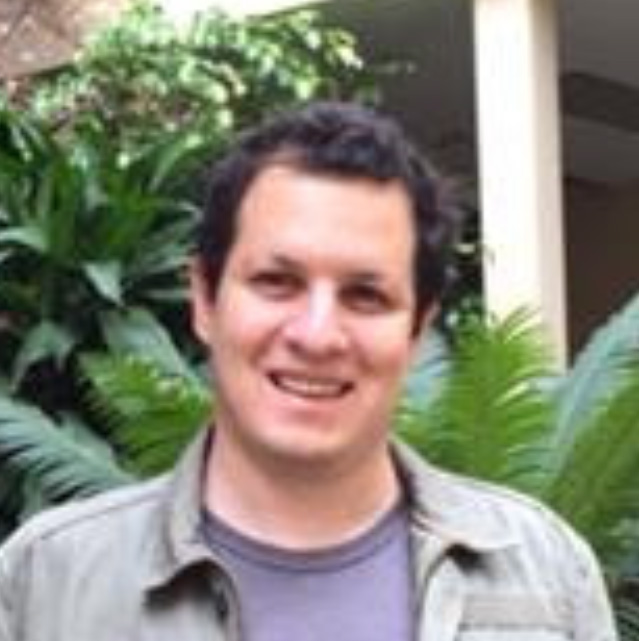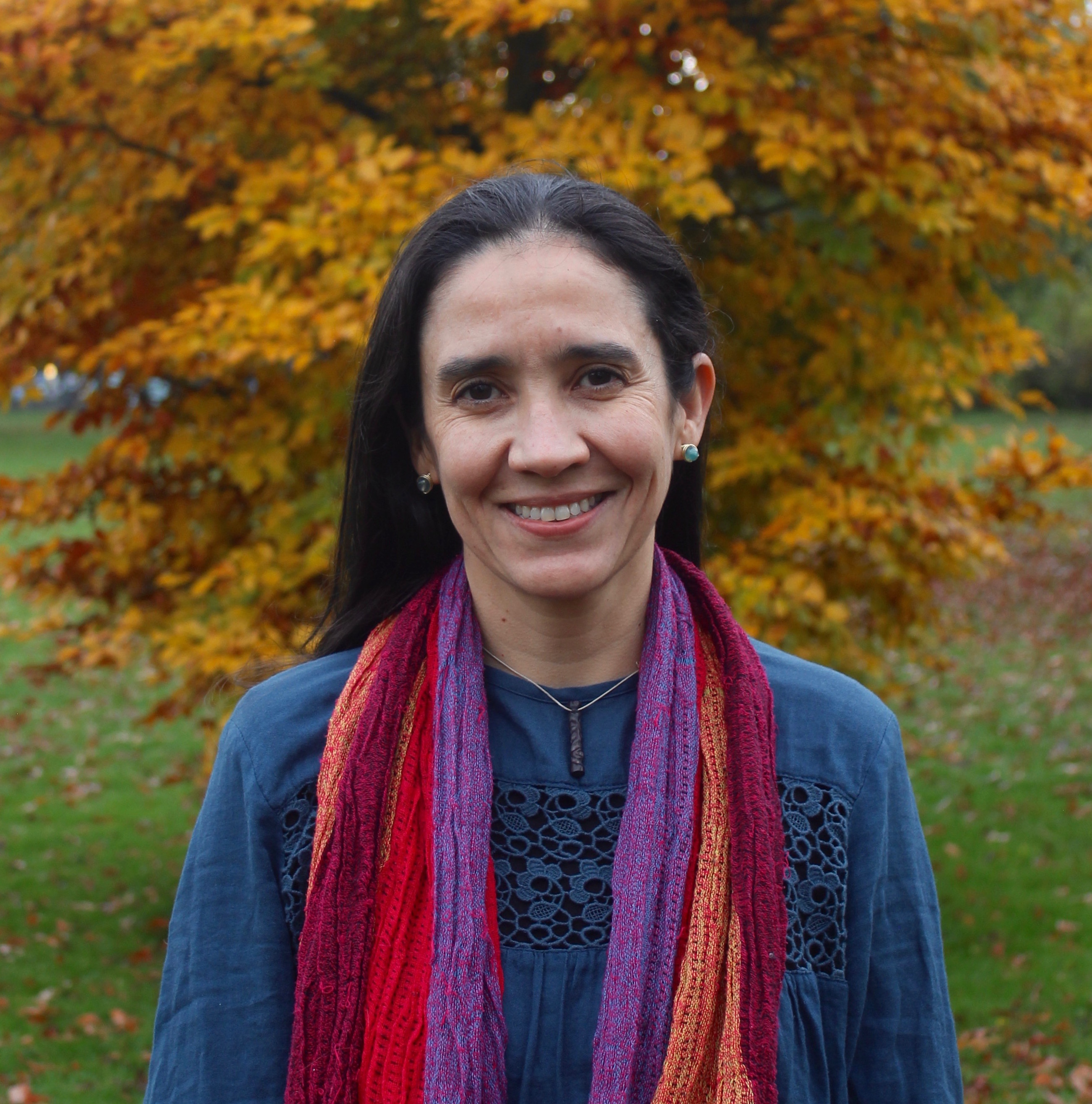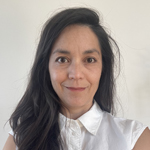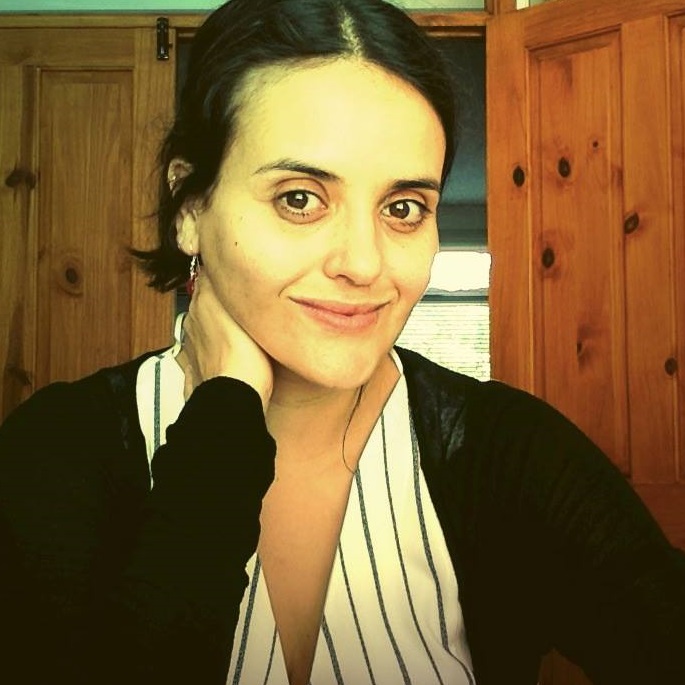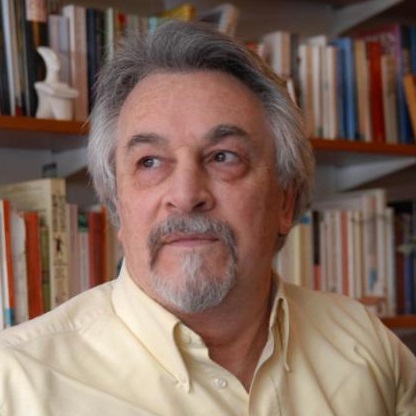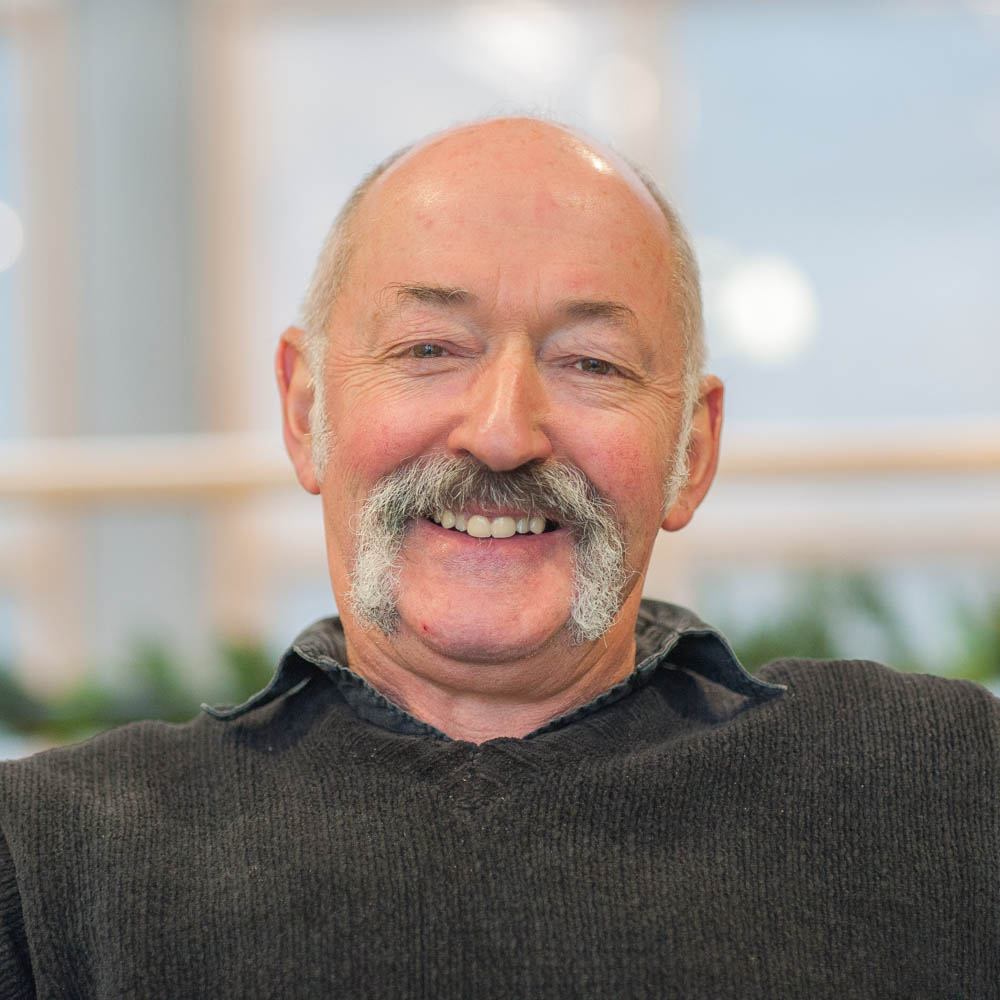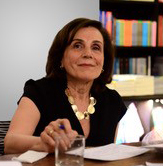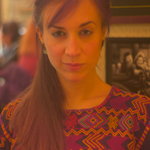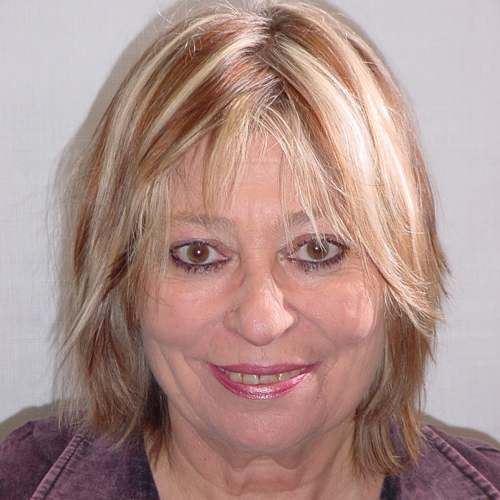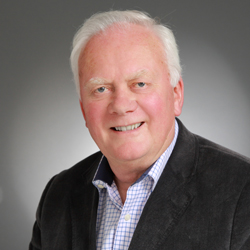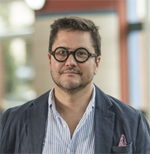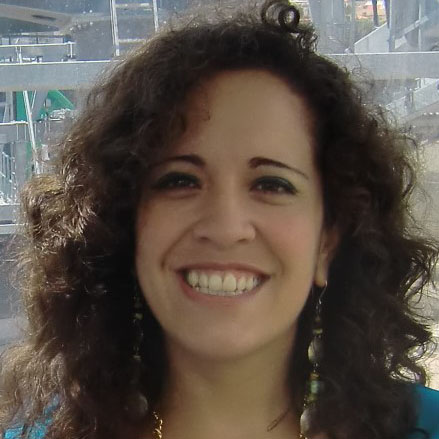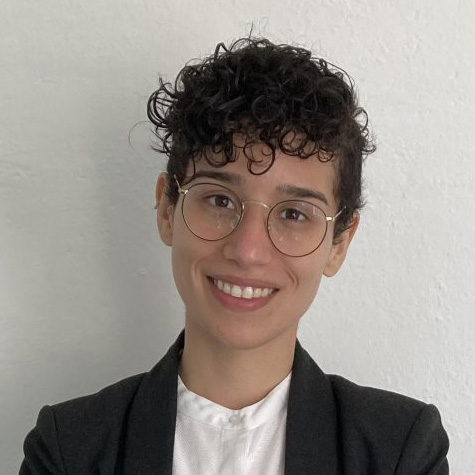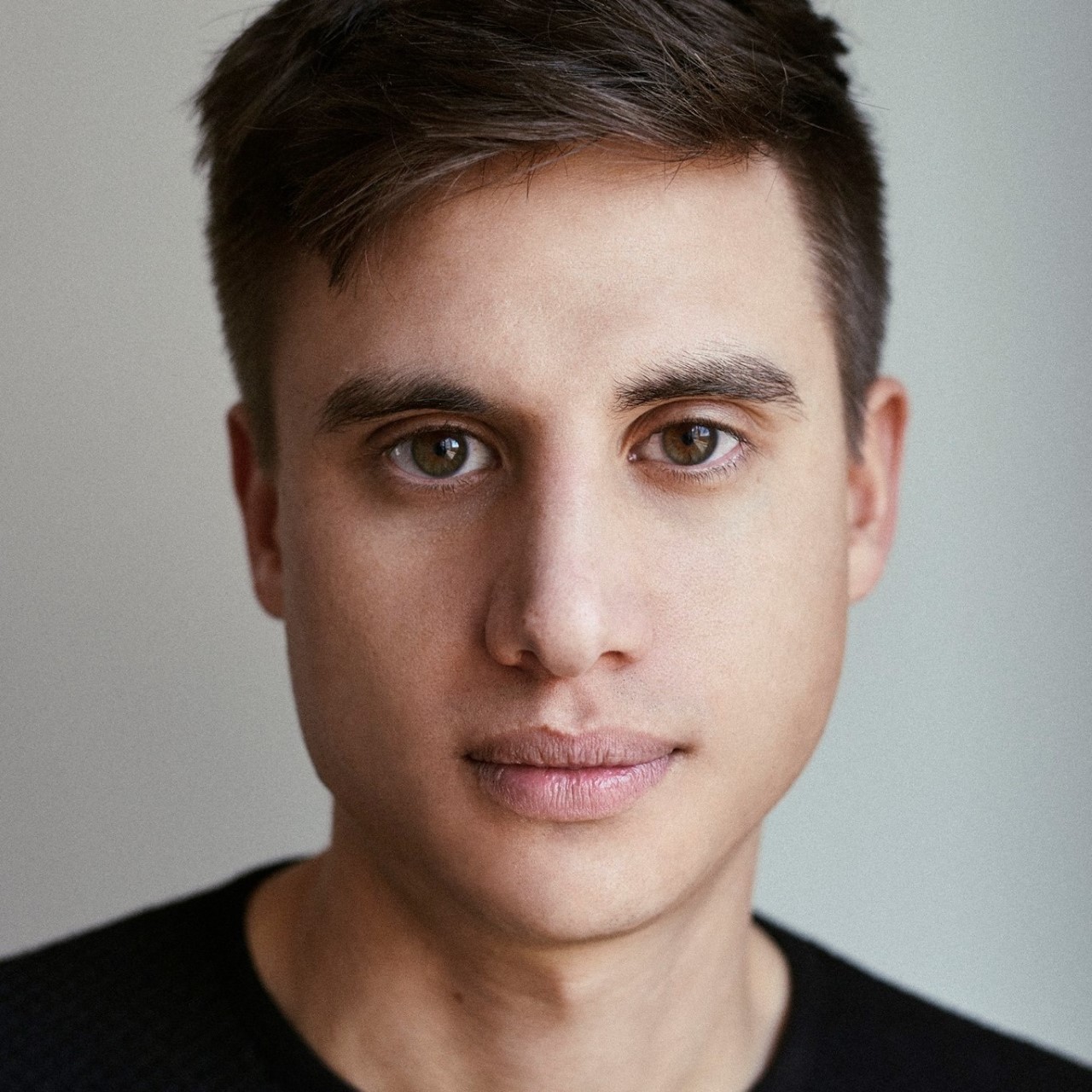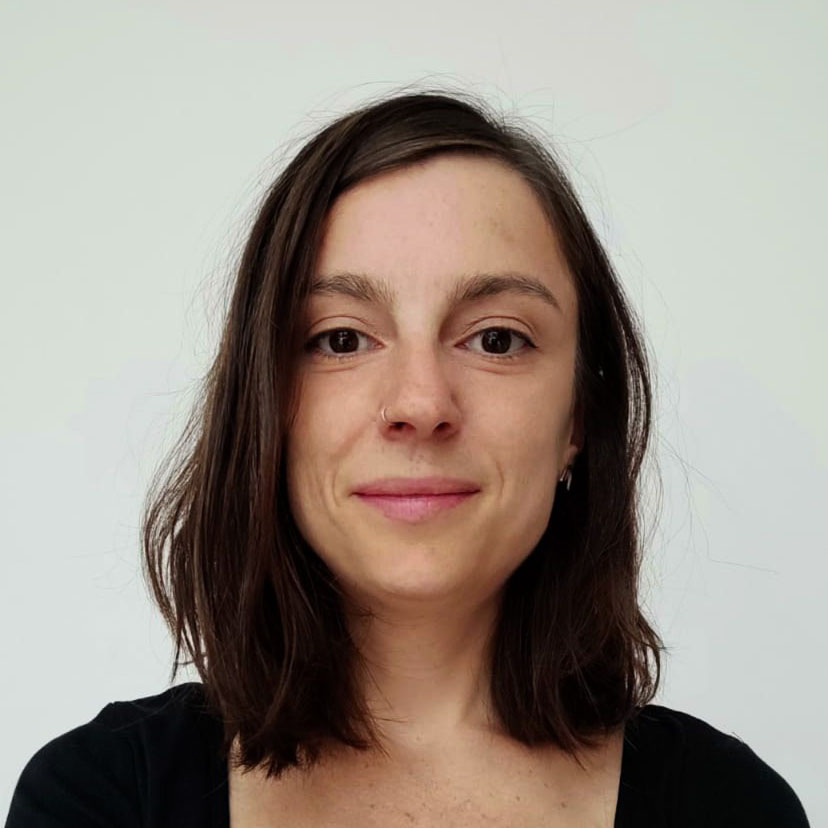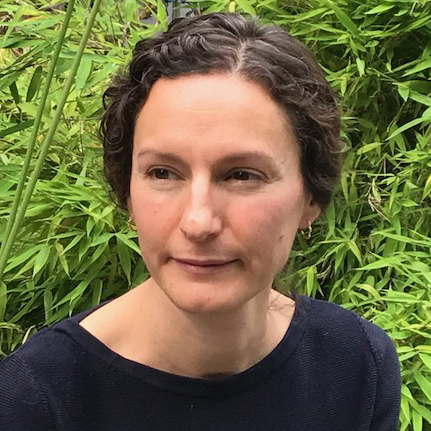The Centre benefits from its relationships with a number of associates, who are not currently full-time members of staff but who are actively involved in research and teaching at the Centre. As well as scholars from Cambridge and the UK, these also include researchers based in Latin America who visit the Centre on a regular basis.
Honorary Emeritus Associates
Research Associates
- Julieta Chaparro Buitrago
- Peter Burke
- Jennifer Castañeda Navarrete
- Katia Chornik
- Tanya Filer
- Julieta Galante
- Liliana Galindo
- Sofia Gotti
- Charles Jones
- Blanca Larrain
- David Lehmann
- Adrián Lerner
- Jimena Lobo Guerrero Arenas
- Paula López Caballero
- Federico Lorenz
- Marta Magalhães Wallace
- Guillermo A. Makin
- Charlie Nurse
- Maria Lúcia Garcia Pallares-Burke
- Mara Polgovsky Ezcurra
- Cristina Reigadas
- David Rock
- Andres Roman-Urrestarazu
- Maria Daniela Sanchez-Lopez
- Jesús Sanjurjo-Ramos
- Jessica Sklair
- Tamara Wattnem
Teaching Associates
- Françoise Barbira Freedman
- Viviane Carvalho da Annunciação
- Joshua Fitzgerald
- Liesbeth François
- Aiko Ikemura Amaral
- Felipe Krause
- R.Sanchez-Rivera
- Dolores Señorans
Honorary Emiritus Associates
David Brading (1936-2024)
Honorary Emeritus Associate; Director 1973-1990
David Brading read History at Pembroke College, Cambridge, from 1955-57. In 1960-61, he spent time in the United States as a Henry Fellow at Yale University, during which period he made his first visits to Latin America, specifically Cuba and Mexico. Brading undertook his PhD in 1962, with periods of archival research in Spain and Mexico. He graduated in 1965, the same year in which he was appointed assistant professor at the University of California at Berkeley, where he lectured on the history of Mexico, Peru and Argentina. His first book, Miners and Merchants in Bourbon Mexico 1763-1810 was published by Cambridge University Press in 1971. After a further two years at Yale, he returned to Cambridge in 1973 to take up the position of University Lecturer in Latin American History. From 1973-1990, he acted as Director of the Centre of Latin American Studies. In 1978 he published Haciendas and Ranchos in the Mexican Bajio. Leon 1700-1860 which was based upon archival research in Mexico. It was followed, in 1994, by Church and State in Bourbon Mexico, the Diocese of Michoacán 1749-1810, which, like its predecessors, was based on local archives. But during the 1980s he had abandoned archival research in favour of an analysis and evocation of the printed sources that the Spanish conquest and settlement of the Americas had elicited. The unsuspected wealth of these materials was demonstrated in The First America. The Spanish Monarchy, Creole Patriots and the Liberal State 1493-1867, a volume of 761 pages that covered the political and social development of Mexico and Peru in those years. This was followed by Mexican Phoenix. Our Lady of Guadalupe: Image and Tradition across Five Centuries, which revealed the richness of contemporary printed sources. Finally, in 2011, the press of the Congress of Peru published Profecía y patria en la historia del Perú. During the course of 2014 he completed a set of essays on colonial Mexico dealing with a variety of topics that will be published during 2015.
David Brading is an Emeritus Fellow of Clare Hall, Cambridge, an Honorary Fellow of Pembroke College, Cambridge and a Fellow of the British Academy.
Marcial Echenique OBE MA DArch RTPI RIBA
Honorary Emeritus Associate
Marcial Echenique is a Fellow of Churchill College and Professor Emeritus of Land Use and Transport Studies, and a former Head of Architecture at the University of Cambridge. He is accredited, in particular, with early work on the integration of land use and transport planning. He has acted as a consultant to numerous government and local authorities and has directed major planning studies financed by international institutions such as The World Bank and The United Nations. He directed the influential study of Cambridge Futures (Royal Town Planning Institute award for planning innovation in 2000). In 2009 he was awarded an OBE for services to Urban and Regional Planning. Since 1990 he has been an advisor to successive Chilean ministers for planning infrastructure in cities.
He has published more than 100 articles and books, including 'Growing Cities Sustainably: Does Urban Form Really Matter?', co-authored with A. Hargreaves, G. Mitchell and A. Namdeo, Journal of American Planning Association (JAPA), vol. 78 no. 2 (2012); 'Land Use/Transport Models and Economic Assessment', in Research in Transportation Economics, vol. 31 (2011); 'Mobility and Income' in Environment and Planning A, vol. 39, no. 8 (2007); 'El crecimiento y desarrollo de las ciudades' and 'Las vías expresas urbanas: que tan rentables son?', in Santiago: dónde estamos y hacia dónde vamos, ed. A Galetovich, Centro de Estudios Públicos, Santiago de Chile (2006); 'Forecasting the Sustainability of Alternative Plans, The Cambridge Futures Experience' in Future Forms and Design for Sustainable Cities, ed. M. Jenks and H. Dempsey, Architectural Press, Elsevier (2005); 'Econometric Models of Land Use & Transportation', in Handbook of Transport Geography & Spatial Systems, eds. D. Hensher, K. Button, K. Haynes y P. Stopher, Elsevier Sciences (2004).
Teaching and Research Associates
Peter Burke
Research Associate
He has been a visiting teacher or researcher in Berlin, Brussels, Canberra; Groningen, Heidelberg, Los Angeles, Nijmegen, Paris (the EHESS), Princeton (IAS and Department of History) and São Paulo (Instituo para Estudos Avançados). He is a Fellow of the British Academy; Member of the Academia Europea; Ph. D (honoris causa), Universities of Lund, Copenhagen, Bucharest, Zurich, Brussels and Oviedo; Honorary Professor of the National University of Colombia; Honorary Fellow of St John’s College Oxford.
He has published hundreds of articles and chapters as well as 30 books, from Culture and Society in Renaissance Italy (1972) and Popular Culture in Early Modern Europe (1978) to A Social History of Knowledge (2 vols., 2000-2012) and Exiles and Expatriates in the History of Knowledge (2017). His work has been translated into 33 languages. For most of his career he worked on the cultural and social history of early modern Europe, but now extends his investigations more widely to include Brazil and the 20th century. His Cultural History of Polymaths appeared in 2020 and his current project is a social history of ignorance.
Jennifer Castañeda-Navarrete
Research Associate
Viviane Carvalho da Annunciação
Teaching Associate
Julieta Chaparro Buitrago
Research Associate
I am a Latin American anthropologist and completed my PhD at The University of Massachusetts Amherst. I am currently a lecturer in Sociology at the University of Cambridge and a researcher of the Reproductive Sociology Research Group- ReproSoc under the leadership of Professor Sarah Franklin. Before this position, I was a lecturer in the Graduate Gender Program at Utrecht University.
My work seeks to understand how the colonial conditions of the present shape the reproductive lives of peasant and indigenous women, whether through aggressive population control programs or exposure to chemical environments. I understand that peasant and indigenous people’s reproductive decisions are shaped by long-standing structures that emerged during the colonial period but have outlived it. I am currently working on my book manuscript Decolonizing Reproductive Rights and the Cases of Forced Sterilization in Peru, where I map different registers of forced sterilization, including peasant women’s grammar of reproductive abuse, urban feminist reproductive activism, and the bureaucratic treatment of these cases in different state institutions. In this book, I argue that a hierarchy of discourse between them shapes a dominant understanding of reproductive abuse along repronormative assumptions, displacing other harms narrated by survivors, such as loss of strength and alteraciones that are not easily mapped within its boundaries. I am developing a second research project that expands my work on decolonizing reproduction by looking at how chemical exposure and extractive industries affect the reproductive lives of humans, animals, and the land.
Katia Chornik
Research Associate
Katia Chornik joined CLAS as a Research Associate in 2020, having also worked across Cambridge humanities and social sciences departments as Senior Research Impact Coordinator. She is currently Impact Development Manager at Kingston University, leading on research impact and knowledge exchange for the Kingston School of Art and the Faculty of Health, Social Care and Education.
Her research expertise focuses on 20th- and 21st- century Latin American cultural history, particularly in the areas of music, memory and human rights, and the writings of Alejo Carpentier. She directs and edits the bilingual digital platform Cantos Cautivos, which compiles testimonies on musical experiences in political detention centres in Chile under Pinochet's dictatorship, as well as music composed, performed and listened to in these contexts. She first developed this project in partnership with Chile's Museum of Memory and Human Rights, during her Leverhulme Early Career Fellowship at the University of Manchester. Her project, hailed as "an extraordinary digital archive" by The New Yorker critic Alex Ross, was featured in the British Museum's exhibition I Object: Ian Hislop's Search for Dissent (2018-19).
Katia is currently writing her second book, Captive Songs: Music and Political Detention in Pinochet's Chile, 1973-1990, under contract with Oxford University Press. Her first book, Alejo Carpentier and the Musical Text, was published by MHRA-Maney/ Routledge in 2015. She has also published widely on Latin American topics in peer-reviewed journals and media outlets, including the BBC, The Guardian and The Economist.
Outside academia, she worked as a Commissioning Officer in the UK governmental sector, and as a violinist with the Santiago Philharmonic Orchestra, Chile. She holds degrees from the Catholic University of Chile, the Royal Academy of Music, the University of London and The Open University. She is a Fellow of the Higher Education Academy.
Tanya Filer
Research Associate
Joshua Fitzgerald
Teaching Associate
Josh teaches and supervises on pre-colonial and colonial Latin America, the History of Mexico, Spiritual Conquest Studies, Mesoamerican archaeology, and early-modern world history. His research interests include Mexico’s art and architecture, ethnolinguistics, the Science of Learning, human-animal communication, and ethnohistory related to video games. He is currently investigating indigenous materiality relating to food, animals, colour, and space. In Cambridge, Josh is seeking to amplify Indigenous Studies, help to develop ethnohistories of art projects, and publish his first manuscript (currently titled: An Unholy Pedagogy: The History of Mesoamerican Art, Architecture and Learningscapes under Spain, 1300 – 1700). His new research on Spanish colonialism and Indigenous reds (so-called cochineal) will be featured in the Museum of Archaeology and Anthropology’s exhibition Colour (2022) by Senior Curator Dr Anita Herle.
Liesbeth François
Teaching Associate
Julieta Galante
Research Associate
Since then, Julieta's programme of research has been focused on public mental health improvement. She is passionate about conducting high-quality studies to devise mental health promotion interventions that consider peoples’ lifestyles, communities and environments. One aspect of this has been studying the effects of meditation techniques derived from contemplative traditions on individuals and communities’ wellbeing. She is now collaborating internationally to study mental health needs and possibilities of preventative intervention in Latin American communities under complex social situations. See publications list
Liliana Galindo
Research Associate
Lili is orignally from Colombia, and has been collaborating closely with the faculty of Medicine of Pontificia Universidad Javeriana, and in 2018 she was awarded the role of Profesor Ad Honorem. She also has teaching experience as a PhD advisor at the Universitat Autònoma de Barcelona.
One of her main interests is resilience, prevention of violence and mental health. Her current research is focused on perception, learning and decision-making and how these may be altered in circumstances of mental illness. She has experience leading and coordinating research projects and multidisciplinary community-based interventions in the UK, Spain and Colombia.
Sofia Gotti
Research Associate
Aiko Ikemura Amaral
Teaching Associate
Charles Jones
Senior Research Associate; Sometime Director
Felipe Krause
Teaching Associate
Blanca Larrain
Research Associate
Dr Blanca Larrain is a social scientist and has a PhD in Social Development Planning at University College of London, UK. She studied psychology at Pontifical Catholic University of Chile followed by a Master in Sociology at Alberto Hurtado University and then completed an MSc in Social Development Practice at UCL. She has worked as a researcher, consultant, and practitioner, exploring social development, public policies analysis, citizen-state relationships (governance and participation) as well as gender and inclusion, mainly in Latin America and the UK.
Central to her research ethos is the critical evaluation of public policies. Larrain adopts a holistic lens, encompassing the policy's lifecycle from its genesis. Beyond policy analysis, a significant tenet of her research is the exploration of citizen-state dynamics, unravelling the threads of governance and participation. By bridging academic insights with practical applications, Larrain’s collaborations span a spectrum of organizations, from international entities to grassroots NGOs, symbolizing her commitment to driving change at multiple levels.
She is currently working as a Research Associate at the Mental Health | Policy | Economics Group at the Department of Psychiatry, University of Cambridge. She is investigating the social policy and practice related to harmful effects of digitalization on mental health, particularly for young people in Europe.
David Lehmann
Senior Research Associate; Former Director (1990-2000)
Adrián Lerner
Research Associate
Adrián Lerner is a Research Associate and Lecturer in Global History at the Free University of Berlin. He is a historian of cities, environmental history, the history of science, and Latin America. His current monograph, Jungle Cities: The Urbanization of Amazonia explores the parallel and divergent histories of Manaus (Brazil) and Iquitos (Peru), the crucial urban nodes of the Amazon rainforest. He is also working on two co-edited volumes: one about the links between capitalism and the formation of the ecological imagination in Peru (with Javier Puente, Smith College), and one about Peru from the perspective of global history (with Alberto Vergara, Universidad del Pacífico). He has also published widely on the histories of politics, international relations, gender, and public policy in Latin America.
Born and raised in Lima, Peru, Adrián obtained his BA and Licenciatura at the Pontificia Universidad Católica del Perú. He then moved to the United States, where he earned his MA, MPhil, and PhD in History from Yale University, where he was also a member of the inaugural cohort of the Interdisciplinary Concentration in the Humanities, focused on “The Technologies of Knowledge.” Before joining the Free University of Berlin, he was the Princeton Mellon Postdoctoral Research Fellow in Urbanism and the Environment at Princeton University.
Jimena Lobo Guerrero Arenas
Research Associate
Jimena Lobo Guerrero Arenas is Senior Curator of World Archaeology at the Museum of Archaeology and Anthropology at the University of Cambridge. She has a PhD from the University of Bristol and an interdisciplinary background in Anthropology (BA, Universidad de Los Andes, Colombia) and History (BA and MA, Universidad de Los Andes, Colombia).
Before coming to Cambridge, she was Lecturer in Archaeology at the University of Caldas in Colombia, where she was also Curator of Archaeology at the University Museum Centre.
Her research interests span the history and archaeology of colonialism, indigenous and African forms of resistance, pre-Columbian and colonial metallurgy, ethnoarchaeology, material culture studies, and cultural heritage. Recently, her research has focused on the study of metallurgy in the Americas during the colonial period. Her book "Del texto, contexto y lugar del oro en la Crónica de Indias de Pedro Cieza de León" aimed to investigate the meaning and use of gold as a rhetorical concept in colonial discourse.
Jimena has worked extensively with museum collections and is interested in contributing to decolonization work in museums by actively engaging the voices of indigenous peoples and source communities in the creation of exhibition narratives and learning experiences. She is interested in collection research projects that address issues of provenance, the life of objects, and processes of repatriation and restitution. She was Assistant Archaeologist in the Gold Museum expansion project in Bogotá, Colombia and between 2007 and 2011 she was director of Casa del Alabado-Museum of Pre-Columbian Art in Quito, Ecuador.
Paula López Caballero
Research Associate
Paula López Caballero is a Mexican historian and anthropologist working as a full-time tenured professor at the National University of Mexico (UNAM). She has been awarded the Baxandall Visiting Fellowship for a research stay at Robinson College (University of Cambridge) for the spring of 2024. She is currently preparing a new monograph, tentatively titled Experts of Everyday Life. A history of ‘fieldwork’ in Mexico and the United States, 1940-1960, in which she analyzes field notes and diaries to reflect on scientific practices, the implementation of indigenista and developmentalist policies, and the progressive institutionalization of the indigenous/mestizo divide in mid-century Mexico.
In her last monograph as a single author, Indígenas de la nación (2017), she explored how local forms of identification have been practised and changed over time (17th-21st centuries) in Milpa Alta, a district of Mexico City characterized by anthropologists throughout the 20th century as “purely indigenous.” In Beyond Alterity (2018), an edited volume she coordinated, specialists from various fields such as political history, history of science, and anthropology critically reflected on the attribute of “alterity” commonly associated with indigenous identification. In De Agua, de sangre y de ceguera (2023), her most recent publication, she edited, introduced, and published a series of field diaries and photographs taken in Chiapas and Oaxaca in 1945-46 by the explorer Franz Blom and the journalist Gertrude Duby. She has also published in journals such as Hispanic American Historical Review, Journal of Latin American and Caribbean Anthropology, Historia Mexicana, L'Homme. Her work has also been published as chapters or articles in the United Kingdom, Colombia, Argentina, Spain, Germany, and China.
In addition to her publishing activities, Paula is involved in the research and return of anthropological archives to the sites where ethnographic research was conducted. She has worked with Susan Drucker-Brown’s field notes, photographs, and diaries and with contemporary residents of Jamiltepec, Oaxaca (Mexico), where Drucker-Brown conducted fieldwork in the 1950s. An exhibition of this project will be held at the University of Cambridge in April 2024.
Federico Lorenz
Research Associate
Federico Lorenz holds a PhD in Social Sciences (Universidad Nacional de General Sarmiento - IDES) and a BA in History from the National University of Luján. He is currently an Associate Researcher at CONICET (National Scientific and Technical Research Comittee), based at the Instituto de Historia Argentina y Americana “Dr. Emilio Ravignani” in Buenos Aires.
He was recently awarded a research grant from the Harry Frank Guggenheim Foundation for developing a project on Malvinas/ Falklands War experiences through amateur photographs and war correspondence. Throughout his career as a teacher and historian, he has focused on recent Argentine history, such as political violence, state repression and the Malvinas/ Falklands War, as well as the relationships between history, memory and education. He is a specialist in the social history of the war. He travelled twice to the Malvinas/ Falklands. From those experiences several books and documentaries have emerged (one for BBC Radio 4), as well as educational materials. During 2009 he was in charge of the Programa Educación y Memoria (Memory and Education Programme) of the Ministry of Education (Argentina). Between 2007 and 2008 he was curator of the Museum of the Malvinas Soldier, located in the city of Rawson (Chubut). Between 2000 and 2004 he worked for the Open Memory Civil Partnership (Memoria Abierta), which collects testimonies in an audiovisual archive on state terrorism. During that time, he participated in the assembly and construction of the oral archive.
He regularly publishes on mainstream media in Argentina. Among other books, he is the author of Algo parecido a la felicidad. Una historia de la lucha de la clase trabajadora argentina, 1973-1978 (2013), Las guerras por Malvinas (2012), Fantasmas de Malvinas, Un libro de viajes (2008), Malvinas. Una guerra Argentina (2009) and Todo lo que necesitás saber sobre Malvinas (2014). In addition, he published two novels, Montoneros o la ballena blanca (2012) and Los muertos de nuestras guerras (2013).
Marta Magalhães Wallace
Research Associate
Marta Magalhães Wallace holds a PhD in Social Anthropology from the University of Cambridge. Dr. Magalhães Wallace’s thesis looked at ideas about cosmopolitanism, processes of urban transformation, and violence in contemporary Brazil. Her research interests include political economy and social transformations; ethnography of the state; cities, space and the built environment; violence; memory; mental health; gender; ethics (especially ethics of care); and social theory. Between 2007 and 2011, Dr. Magalhaes Wallace was a postdoctoral research fellow at CLAS, where she convened the MPhil course on the Anthropology of Latin America. She is currently a research associate in social anthropology at the University of Cambridge and a collaborator at CRIA (Centro em Rede de Investigação em Antropologia), ISCTE-IUL (Lisbon). Dr. Magalhães Wallace has written extensively on space, citizenship and violence in Brazil. She has also written on history, memory, material culture and identity in Portugal (2009). In addition to her work in Latin America, Dr. Magalhães Wallace has recently started to do research on mental health in contemporary Europe.
Willie Makin
Research Associate
Guillermo A. Makin is an Argentine political scientist. He gained a First Class Honours Degree at Universidad del Salvador, Argentina, in 1976. His University of Cambridge PhD, completed in 1984, entitled Political Crises in Argentina: 1955 and 1975-76, led him to interview a large number of relevant political actors over the following 20 years. This body of original documentary material is the basis of his current project comparing Argentine institutional and political development on the 30th anniversary of the return of democracy. Makin specialised in relations between Argentina and the UK after the House of Commons Foreign Affairs Committee asked him to interview politicians in 1982-84. This is an on-going project. Makin is frequently consulted by the Argentine and the British media and has published numerous articles, papers and a book comparing presidential and parliamentary systems, Presidencialismo y Parlamentarismo: un estudio del caso británico (El Cid Editor). In the past he has held lectureships at the Universidad de Bologna (Buenos Aires) and the Universidad del Salvador and was appointed Professor by the Universidad de Belgrano in 2001.
Recent publications include ‘Los cambios en la Argentina democrática, 1983-2013’, a paper presented at a Round Table in London in December 2013, organised by the University of Notre Dame and the Kellogg Institute, and also available in a slightly altered text, in English, here. On British politics and the South Atlantic dispute with Argentina see ‘El triunfo de una nueva aristocracia: un modelo para pocos’, in Le Monde Diplomatique: Explorador, pp. 82-87, also at www.eldiplo.org.
Makin’s blog is at http://gamakin.blogspot.co.uk/
Charlie Nurse
Research Associate
Charlie Nurse is a modern historian and political scientist who holds degrees from the Universities of Manchester (BA) and Glasgow (M. Litt). His post-graduate research was on the politics of the labour movement in Ecuador and was summarised in a chapter on Ecuador in “The State, Industrial Relations & the Labour Movement in Latin America” (edited by Jean Carrière et al, 1989). In the 1980s he worked in social development in Nicaragua and taught in the Universidad Nacional Autónoma de Nicaragua before becoming a travel writer, authoring the early editions of the Chile Handbook and the Argentina Handbook. He was subsequently Senior Lecturer in Modern History & Politics at Anglia Ruskin University, specialising on Latin America and Spain and he has also worked for the Open University. He has taught courses on Latin American and Spanish History on the Cambridge University International Summer Schools programme and on Third World Revolutions at the Universidad de la Frontera in Chile. His current research and teaching interests include the Cold War in Latin America, the Cuban Revolution, revolutionary movements, and contemporary political change in Argentina and Chile.
Maria Lúcia Garcia Pallares-Burke
Research Associate
Maria Lúcia Garcia Pallares-Burke was a professor at the Faculty of Education of the University of São Paulo, where she also graduated and obtained her Master’s , PhD and “Livre Docência” degrees. She has worked on the cultural history of the European Enlightenment and its reception in Latin America, and more generally on the circulation and reception of ideas in both European and Latin American contexts. She has also studied the intellectual trajectory of thinkers who had a great impact on Brazilian history, including Gilberto Freyre, his friend Rüdiger Bilden and Anísio Teixeira, a disciple of John Dewey, who fought a battle for the democratisation of education in Brazil from the 1920s until 1964. She is the author, among other works, of As Muitas Faces da História: Nove Entrevistas, a collection of interviews with a group of outstanding cultural historians (2000: - translated into Spanish, English, Korean and Chinese); Gilberto Freyre, um vitoriano dos trópicos (2006: it received the Senador José Ermírio de Morais Prize of the Academia Brasileira de Letras and also the Prêmio Jabuti), Gilberto Freyre: Social Theory in the Tropics (with Peter Burke, 2008) and O Triunfo do Fracasso: Rüdiger Bilden, o amigo esquecido de Gilberto Freyre (2012), which studies Bilden’s battle for the dissemination of the idea of Brazil as a “laboratory of civilization” and for the improvement of race relations in the USA. Her most recent publication is “A Two-Headed thinker: Rüdiger Bilden, Gilberto Freyre and the Reinvention of Brazilian Identity”, in Indigenous Visions – Rediscovering the world of Franz Boas, ed. Ned Blackhawk and Isaiah Lorado Wilner (Yale University Press, 2017). She has been a Visiting Scholar at Columbia University and the Freie Universität Berlin.
Comemorando 210 anos do nascimento da primeira feminista brasileira, Nisia Floresta (12 de outubro de 1810) Historiadora desvenda teia de erros em torno da feminista Nísia Floresta
Mara Polgovsky Ezcurra
Research Associate
Dr Mara Polgovsky Ezcurra is a filmmaker and Senior Lecturer in Contemporary Art at Birkbeck, where she started working in 2018 following a Junior Research Fellowship (JRF) at Queens’ College, Cambridge. Her research
As filmmaker, Polgovsky worked as a producer, co-screenwriter and assistant director for four documentary feature films by her brother, the late filmmaker Eugenio Polgovsky, and the educational projects Deworm the World (2008) and Learning Here and There (2010). Since 2017 she has dedicated herself to rescuing lesser known films, taking curated programs to the Lincoln Center in New York, Documenta Madrid, the Institute of Contemporary Arts (ICA) in London, among other venues. She works as a consultant at various festivals in Mexico and the UK and is in charge of the distribution of Eugenio's films (in conjunction with the Centro de Capacitación Cinematográfica and Piano Distribution). In 2022 she co-directed (with Eugenio, posthumously) her first feature documentary, entitled Malintzin 17, which premiered at the Tiger competition of International Film Festival Rotterdam (IFFR) and was awarded the Ojo for best documentary at the Morelia Film Festival.
Cristina Reigadas
Research Associate
Cristina Reigadas received her Ph.D. degree in Philosophy at the School of Philosophy, University of Buenos Aires. Since then she has been Tenured Full Professor at the School of Social Sciences, University of Buenos Aires, where she is now Consultant Professor and Researcher at the “Gino Germani” Institute of Social Research. She is a Life Fellow at Clare Hall, University of Cambridge.
She specializes in political philosophy, ethics, sociopolitical theory, and critical Latin American thought. Focusing on contemporary social change, she has particularly worked on modernity and globalization, global democracy, contemporary theories of democracy, modernity and democracy in Latin America, deliberative democracy, civil society and voluntary associations. She currently conducts a research project on modernity and democracy in India and China.
Reigadas has compiled and co-authored over 30 books, including Entre la norma y la forma. Cultura y política hoy (EUDEBA, 1998), Globalización y nuevas ciudadanías (Editorial Suárez/IIGG, 2004), “Crisis y renovación de la democracia desde la perspectiva del diálogo intercultural. La cuestión de la democracia en China”, ¿“Quién le teme a Daniel Bell? De la crítica de la cultura de masas al posmodernismo cultural” (2014), Jürgen Habermas and Wang Hui. Modernidad y sociedad mundial: un diálogo intercultural” (2012), “Modernidad y religión en el pensamiento actual de Habermas” (2011), “Calidad institucional y populismo: dos visiones de la democracia latinoamericana” (2010), “¿Misioneros, militantes, tecnócratas? Hacia un cambio de paradigma en las asociaciones voluntarias en la Argentina” (2008), translated into Chinese Mandarin in the Journal of Comparative Economic & Social Systems (JCESS), (www.bijiao.net.cn) (2014).
She has given lectures, courses and seminars at universities around the world, including Argentina, Chile, Brazil, Spain, Portugal, France, Germany, China and the UK, and has worked as a visiting professor with Professor Daniel Bell at the Department of Sociology, Harvard University, USA; Professor Thomas McCarthy at the Department of Philosophy, Northwestern University, USA; Professor Bryan Turner at the University of Cambridge; and with Professor Alain Caillé at the Laboratoire de Sociologie, Philosophie and Anthropologie Politique (Sophiapol), Université de París X, France.
She has been distinguished by the Institute of German and Latin American Culture (ICALA) for her contributions to the development of Latin American thought.
David Rock
Senior Research Associate
David Rock graduated from St. John's College, Cambridge with a BA and MA and holds a Cambridge Ph.D. He served as Research Officer in the Cambridge Centre of Latin American Studies and later moved to the History Department at the University of California, Santa Barbara where he taught Latin American history for more than three decades. His research interests lie in Argentina, a country on which he has published books and articles on nineteenth and twentieth century historical topics. The books include Politics in Argentina, 1890-1930. The Rise and Fall of Radicalism, based on a Ph.D. dissertation completed at Cambridge. He later published a synthetic general history, Argentina 1516-1987. From Spanish Colonization to Alfonsin. A study titled Authoritarian Argentina provoked by the Argentine military dictatorships of the 1970s followed. Another book titled State Formation and Political Movements in Argentina, 1860-1916, analysed the growth of the political system in that period. On returning to Cambridge, he hopes to complete a book on the British in Argentina tentatively titled 'Empire without Dominion: the British in the Río de la Plata from 1800'.
Andres Roman-Urrestarazu
Research Associate
Andres Roman-Urrestarazu, M.D., Ph.D., M.Sc., is an academic psychiatrist, public health clinician, and group leader at the Department of Psychiatry, University of Cambridge. He is also an Assistant Professor at Maastricht University and Visiting Professor at the Pontificia Universidad Catolica de Chile. Dr Roman-Urrestarazu was previously a Harkness Fellow in Health Policy at Stanford University and Gillings Fellow in Global Public Health (2016–2020). He is a Member of the Faculty of Public Health and a Board Member of the International Society for the Study of Emerging Drugs (ISSED), and worked as Civil Servant in the Centre for Health Technology Evaluation (CHTE) at the National Institute for Health and Care Excellence (NICE). He also currently leads the health system stream on the Lancet Commission on Problematic Use of the Internet. His research in Latin America is focused on Chile’s early years policy, and is based
at the intersection of health policy and public mental health, with a focus on early child development and health inequalities with research in the field of conditional cash transfer and neurodevelopmental screening in low resource settings. Dr Roman-Urrestarazu’s work has been published in leading health policy and medical journals, including JAMA Pediatrics, BMJ, and Lancet Child and Adolescent Health, and has directly informed policy. In 2016, he submitted evidence to the House of Commons for the UK Psychoactive Substances Act, and in 2023 submitted evidence to the Online Safety Bill and . He has a Ph.D. in Psychiatry from the University of Cambridge, M.D. from the University of Santiago in Chile, and M.Sc. in International Health Policy from the London School of Economics and Political Science.Maria Daniela Sanchez-Lopez
Research Associate
Daniela Sánchez-López is a Bolivian economist with an interdisciplinary background in political science, international development and human geography. She has a master's degree in Development Studies and a doctorate in International Development.
Dr. Sánchez-López has extensive research experience on critical mineral governance and the lithium-ion battery supply chain, socio-environmental conflicts and energy geopolitics. As a research fellow at the Margaret Anstee Centre at the University of Cambridge, she focused her work on the environmental, social and governance (ESG) issues in the Lithium Triangle in South America as well as the sociotechnical implications of the new European Union battery regulation.
She also has extensive experience in public policy research in international organizations such as the United Nations Development Program (UNDP-Bolivia), the Inter-American Development Bank (IDB), the Andean Development Corporation (CAF) and NGOs with regional experience in Latin America. She currently works as analyst of strategy at Nyobolt, a battery innovation and technology company in the United Kingdom.
R.Sanchez-Rivera
Teaching Associate
Dr R Sánchez-Rivera is a Research Fellow and Affiliate Lecturer in the Department of Sociology, Gonville & Caius at the University of Cambridge. Sánchez-Rivera has a Ph.D. in the Centre for Latin American Studies at the University of Cambridge. They hold a B.A. in Political Science and History from the University of Puerto Rico, Río Piedras Campus and an M.A. in Regional Studies—Latin America and the Caribbean from Columbia University in the City of New York.
Further details / Publications
Jesús Sanjurjo-Ramos
Research Associate
Dr Jesús Sanjurjo is an Early Career Fellow of the Leverhulme and Isaac Newton Trusts at the University of Cambridge and the author of In the Blood of Our Brothers. Abolitionism and the End of the Slave Trade in Spain’s Atlantic Empire, 1800–1870 (University of Alabama Press, 2021).
He was born in Gijón, Asturias, on the northern coast of Spain, in 1991. Before joining Cambridge, he was a lecturer at the University of York and Cardiff University. He studied History at the undergraduate level at the University of Oviedo and then obtained an M.A. in Race & Resistance and a PhD in Spanish and Atlantic History at the University of Leeds, under the supervision of Prof Manuel Barcia and Dr Gregorio Alonso. He was awarded an AHRC-WRoCAH Doctoral Studentship.
After the publication of his first book, his next major research project is entitled ‘Black Soldiers of the Caribbean: Race, Slavery and Radical Politics.’ This project interrogates the intersection of Blackness, radical politics, slavery and self-emancipation in the Caribbean during the Age of Revolutions. It proposes that General Lorenzo’s uprising of 1836 in Santiago de Cuba is a fundamental episode in the history of revolutions of the Atlantic World and explores the motivations, fears and aspirations of the Black soldiers who participated in this failed rebellion. This project will contribute significantly to debates on colonial slavery, the role of Black people (and Black soldiers in particular) to imagine post-emancipation societies, and about the relationship between liberal and modern thinking and the legacies of slavery.
Dolores Señorans
Teaching associate
Dolores Señorans is a British Academy Newton International Fellow at the Department of Social Anthropology, University of Cambridge. In 2018, she received her PhD in Anthropology from the University of Buenos Aires and the École des Hautes Études en Sciences Sociales. For her PhD dissertation, she addressed the everyday forms of activism within popular economy through an ethnography of the Confederation of Workers of the Popular Economy, a union representing unwaged workers in Argentina. She studied their practices of organisation and their relationship with state bureaucracies focusing on how they demand and produce rights based on notions of what constitutes a life with dignity. Before coming to Cambridge she held a postdoctoral fellowship at the Institute of Anthropological Sciences, University of Buenos Aires, and worked for the Government of Argentina in the design and implementation of public policies for worker cooperatives. As part of the research group Antropología en Colabor based at the University of Buenos Aires, she has also explored collaborative research methodologies with social movements and labour organisations. Her current research project focuses on the trade union organisation of migrant garment sector workers in Buenos Aires, examining the intersections between outsourced commodity production, South-South migration processes, popular urbanisation in the periphery, and collective labour politics in the city.
Email: ds761@cam.ac.uk
Recent publications:
- Señorans, D. (2021) “Militancia y estéticas políticas en la ciudad neoliberal”. Etnográfica, 25(2), 405-427.
- Señorans, D. (2020) “Economías populares, economías plurales. Sobre la organización gremial de los trabajadores costureros en Buenos Aires, Argentina”. Cuadernos de Antropología Social, 51, 189-206.
- Señorans, D. (2020) “Decentering the Workplace: Labour, Urban Dispossession and Trade Union Organisation amongst Garment Workers in Argentina”. En: Hammer, A. and Fishwick, A. The Political Economy of Work in the Global South. London: Red Globe Press. Pp 69-89.
- Señorans, D. (2020) “The Right to Live with Dignity’: Politicising Experiences of Precarity through ‘Popular Economy’ in Argentina”. Bulletin of Latin American Research. 39 (1), 69-82
Jessica Sklair
Research Associate
Dr Jessica Sklair is a Research Fellow at the Margaret Anstee Centre for Global Studies (Newnham College, University of Cambridge). She received her PhD in Anthropology from Goldsmiths in 2017 and held postdoctoral fellowships at the Institute of Latin American Studies (School of Advanced Study, University of London) and the University of Sussex (SeNSS/ESRC Postdoctoral Fellowship) before joining the MAC. Jessie’s doctoral research explored philanthropy among economic elites in Brazil and the UK and her postdoctoral work has looked at the recent emergence of ‘impact investing’, the practice by which private investors finance social businesses in the search for both social impact and financial return. Jessie is currently working on two collaborative research projects. The first of these looks at how DFID (UK) works with for-profit contractors and consultants, and the second explores processes of financialisation in development practice and financing in Brazil. Jessie has teaching experience in areas including development in Latin America, the anthropology of development, economic and political anthropology, qualitative research methods and visual anthropology.
Email: js222@cam.ac.uk
Recent publications include:
- Sklair, J. (2019) Direitos e responsabilidades: Filantropia e a provisão de serviços de saúde em uma favela paulistana. In: Frúgoli Jr., H., Spaggiari, E. and Aderaldo, G. (eds.) Práticas, Conflitos, Espaços: Pesquisas em Antropologia da Cidade. Rio de Janeiro: Gramma.
- Sklair, J. (2018) ‘Closeness and critique among Brazilian philanthropists: Challenges for a critical ethnography of wealth elites.’ Focaal - Journal of Global and Historical Anthropology, 81, 29-42.
Tamara Wattnem
Research Associate
Tamara Wattnem holds a PhD in Sociology from the University of Wisconsin Madison. She specializes in the sociology of development and economic change, environmental sociology and critical agrarian studies. Her research explores the politics and implications of the deepening of extractivism in Latin America – particularly industrial agriculture, mining, and hydrocarbon extraction. She is currently engaged in two interrelated projects. The first analyzes the distinct trajectories of energy and mining policy throughout Mexico’s neoliberal era, with special attention to the role and reach of resource nationalism. The second project focuses on how and when the International Labor Organization’s Indigenous and Tribal Peoples Convention – more commonly known as the ILO Convention 169 – is used as a tool to both resist and legitimate extractivism. She has also written about global trends in seed legislation that erode farmers’ rights to save and replant seeds.

